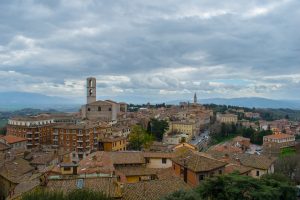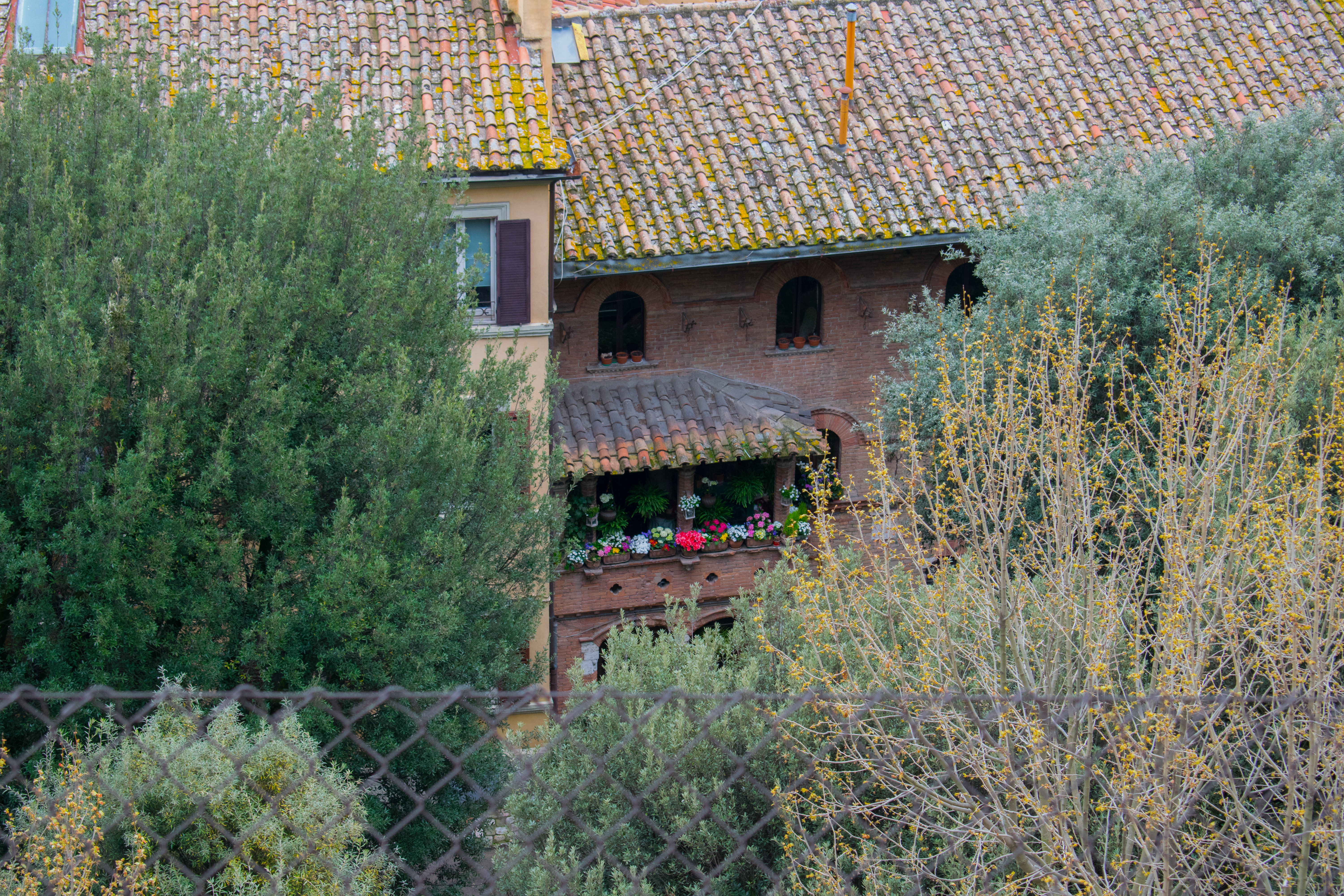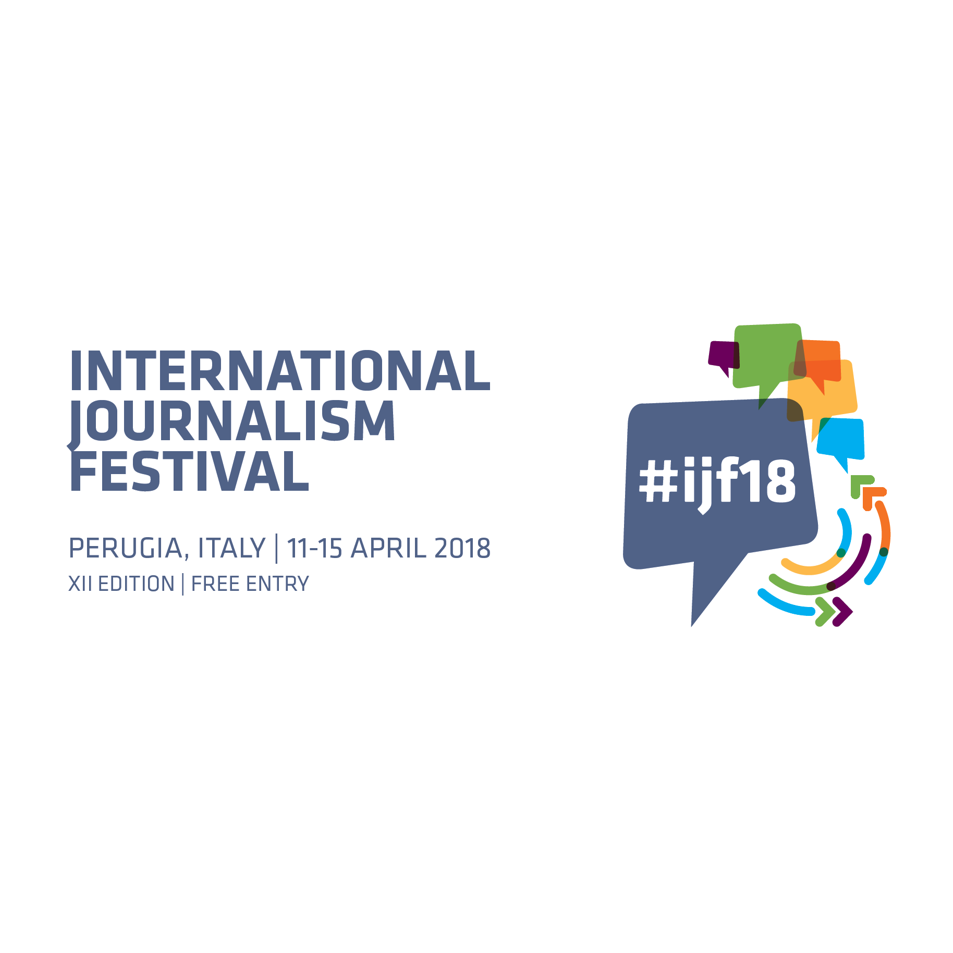IJF18 Day #4: Perugia’s Conclusions
[Original italian version by Antonio Emmanuello]
We have finally come to the final act of IJF18. You, in the direction, please wait a moment before you lower the curtain: we have a couple of things we still need to chat about.
Getting ready also means to try and leave the place in which you’ve been staying in a more or less decent way. The cleaning starts at the first lights of dawn (*cough* 10 am), because, you know, the morning hour has gold in its mouth… like trappers. Among tears, sadness and trash bags we leave our suite to get the last and deserved meal in Perugia, and don’t forget a good last minute shopping. Being by now experts of that city, we choose the first restaurant outside the doorstep. Fed and stuffed as much as this word makes you think of, we roll towards the “panoramic” lift to enjoy the beauty of Perugia, once again. By the way that was an obliged route if we wanted to take the “minimetro” that was supposed to lead us to where the magnificent Flixbus was waiting for us only. And another hundred. And actually it wasn’t waiting at all since we were considerably early. Do you remind of that bar we illegitely occupied in the first episode? There it was, but this time we weren’t risking to get a penal sanction. Unlike the departure, the return journey lasted no more than 6 hours, even if we stopped at Florence. A crazy rush to the onion rings (you know, it is so good to smell them in a restricted space such as… a bus). Everything else went on kinda easily, and so I spent a significant part of the travel writing the first episode (a mindblowing circularity: the end of the journey, and the beginning of this columns. Minds blowing everywhere). We finally got to Milan, missed the train, waited, got to Pavia and, at last, arrived home. End of story. Curtain. No, wait, not yet.
We still have to talk about conclusions. What was this experience for? In the precise moment probably nothing, if we exclude writing articles and facing some topics with you, reader. But all in all it is for expanding the wealth of personal experience, to make others know about a reality that, in the future, may be of somebody else’s interest, maybe yours: yes, you who’s reading while picking your nose. IJF is a growing reality, this year more than ever a foreign presence has been felt, with dozens of ensligh panels, or simultaneously translated ones. The sociopolitical atmosphere of this event is clear: “a well informed citizen makes democracy stronger”, and this isn’t the only crucial goal of the festival: I’d say that it is one of the main goals of journalism in general. Large space has been given to current events, as you can remind: immigration, for instance, without leaving future behind; on the contrary, it has been a central topic. Many were the technologies presented: technologies that will be the axis around which tomorrow’s information will move. From big data elaboration, to their protection by advanced systems; from the Internet, that’s becoming more and more influencial in our lives, to propaganda, through fake news, debunking, post-truth. Despite of IJF being made of data, and despite their importance, it doesnt’ have data. It’s almost ironic, but speaking about numbers is difficult. Since it is a reality that is completely free for everyone, it’s practically impossible to consider the number of the participants. But I personally witnessed that the city was full of people: young people, students, people from the sector, but not only; many italians, but not only. A real encounter between cultures, for culture. Moreover, 1038 guests, hundreds of live videos (when not live, recorded and uploaded on YouTube by the organization itself, which covered a considerable part of the events); hundreds of tweets in dozens of languages from all around the world, and lastly, the most important thing: millions of Baci Perugina.
If the field of information is yours, if you dream about entering this world, IJF is a necessary destination. But, if for any reason you’re reading this article without a specific interest, I’m going to give you some tips –such a noble heart– about how to visit Perugia, as a gift. Comfy shoes. Do you have them? Great. Take 3 pairs more with you because it’s never enough. Preliminary workout for at least 6 months: there are infinite climbs and slopes waiting for your ankles to destroy them. Eating in various places is not very expensive, so dare experimenting. Speaking about dough, 200 euros was enough for 3 nights and 5 days out (3 nights? You’ll say. Remember that we spent the first night on the road). 75 were for a house shared by 4 people (300 euros), and 50 were for Flixbus. A little digression about the topic is needed. If you’re a person that sleeps on transports with no problems, it’s El Dorado. For everyone who is keen on convenience, instead: let go, it’s not for you. There’s no personal space, you’re packed all together for several hours in the same place, and if you don’t have a proper companion it can become nerve wrecking. Obiously, it is extremely cheap: that’s a pro and it shuts every complaint up. What remained, around 75 euros, was spent on meals, appetizers, grocery shopping and other little things. Perugia is a very enjoyable city, that lowkey reminds you of Pavia. It is a university city, and it’s tailored for humans’ needs. Despite there were lots of outsiders, it wasn’t impractical, on the contrary. All the main streets are peculiar and walking here and there is more than pleasing, in particular when you have an exceptional view, that is the one right below.

A little bit like Pavia: Perugia is a small city, but a big one when it comes to the experiences that it has to offer.
Direction: you can close the curtain. We’re done.
Baci, no more from Perugia.




